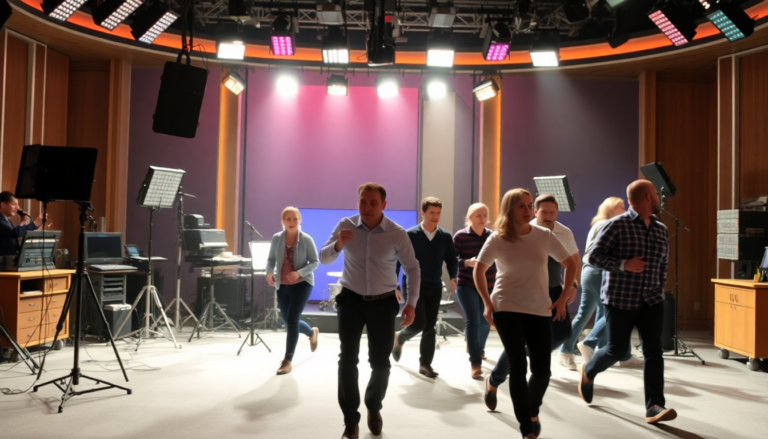Argomenti trattati
Since its debut in 1975, Saturday Night Live (SNL) has become a staple of American television, offering a unique blend of comedy and music. However, its journey has not been without bumps along the way. The show has faced a myriad of controversies—ranging from provocative sketches to the choice of hosts and musical guests—that have stirred public debate and, at times, outrage. These incidents not only reflect the changing landscape of comedy but also highlight the challenges of balancing entertainment with societal expectations.
Early controversies: the Richard Pryor episode
One of the earliest and most significant controversies occurred during Richard Pryor’s appearance on SNL in December 1975. Network executives were so concerned about the potential for profanity and controversial content that they insisted on a five-second delay for the live broadcast. This decision was met with resistance from executive producer Lorne Michaels, who threatened to walk off the show. Pryor, as the first person of color to host, found the delay insulting, a sentiment that resonated with many viewers. The episode ultimately aired live, though it was later reported that some language was edited out, showcasing the ongoing tensions between creative expression and network regulations.
The infamous “Word Association” sketch
In the same episode, Pryor participated in a sketch with cast member Chevy Chase that remains one of the most iconic—and controversial—in SNL’s history. The sketch, titled “Word Association,” featured a racially charged exchange that has sparked discussions about race and comedy for decades. It highlighted the challenges of addressing sensitive topics within a comedic framework, a theme that would recur throughout SNL’s history.
Host boycotts and backlash
Fast-forwarding to the 1990s, SNL faced backlash again when comedian Andrew Dice Clay was slated to host. Cast member Nora Dunn announced her protest against Clay’s perceived misogynistic humor, igniting a fierce debate about the boundaries of comedy. The backlash against Clay’s selection was widespread, leading to increased security measures during the live show. The incident underscored the delicate balance that SNL must navigate between pushing boundaries and maintaining inclusivity.
Sinéad O’Connor’s protest
Another high-profile incident occurred in 1992 when Sinéad O’Connor was scheduled to perform on the show. During her appearance, she made a bold statement by tearing up a photo of Pope John Paul II in protest against child abuse in the Catholic Church. NBC had no prior knowledge of her plan, and the aftermath saw thousands of angry calls flooding the network. O’Connor’s actions sparked a national conversation about the role of celebrities in activism and the consequences of taking a stand on controversial issues.
Political controversies and protests
In more recent years, SNL has continued to find itself at the center of political controversies. Donald Trump’s hosting in 2015—amid his presidential campaign—sparked protests from various advocacy groups. The backlash was intense, with calls for NBC to cancel his appearance. Despite the protests, the episode drew significant ratings, highlighting the complex relationship between politics and entertainment.
Elon Musk’s controversial hosting
Similarly, Elon Musk’s hosting in 2021 drew criticism from both cast members and the public. Many questioned why Musk was chosen over other potential hosts, citing his controversial personality and past behavior. This incident serves as a reminder of how SNL continues to attract both praise and criticism, often reflecting the polarized nature of contemporary society.
Memorable mishaps and on-stage blunders
Over the years, SNL has also experienced its fair share of on-stage mishaps that have contributed to its controversial reputation. One notable incident involved Ashlee Simpson, who experienced a major blunder when her vocals were mixed up during a live performance. The incident resulted in widespread criticism and left a lasting mark on her career. Such blunders remind audiences that live television is inherently unpredictable and can lead to unexpected moments of both humor and embarrassment.
Kanye West’s impromptu speech
In 2018, Kanye West used his platform on SNL to launch into an unfiltered rant about politics and media, catching both the live audience and viewers at home off guard. The moment was met with mixed reactions, showcasing how SNL remains a space for both comedy and serious commentary, often blurring the lines between the two.
As we look back on the controversies that have shaped Saturday Night Live, it’s clear that the show has always been more than just a comedy sketch program. It serves as a cultural barometer, reflecting the tensions, challenges, and conversations of its time. With each new episode, SNL continues to push boundaries, challenge norms, and spark dialogue—reminding us that comedy can be both entertaining and provocative.

